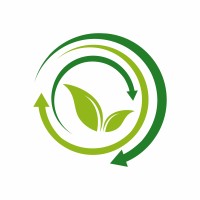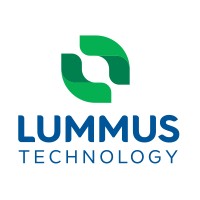-
Maritime Decarbonization Strategy 2022
The Maritime Decarbonization Strategy reviews the progress of the transition in the shipping sector so far and outlines the actions the industry must take to move closer to the Paris 1.5°C trajectory. The conclusions and recommendations presented in the report are based on analyses and modelling work done by the Mærsk Mc-Kinney Møller Centerfor Zero Carbon Shipping, outcomes from workshops with center partners and other stakeholders across the maritime industry, and the results ...
-
Short-haul flying and sustainable connectivity
The emergence of global targets to decarbonise have brought with them increased scrutiny of transport and of aviation in particular. One proposed means of reducing greenhouse gas emissions from transport is a modal shift from air to rail. This has been encouraged both through investment in rail infrastructure, and by bans and taxes on short-haul air journeys. Oxera has been commissioned to assess the environmental impacts of air and rail and the factors that need to be taken ...
-
Eliminate heat exchanger fouling with Watlow’s HELIMAX technology
Fluctuations within the heat exchanger to either the operating temperature or the mass flow rate are common causes of coking, which can lead to system failures and expensive downtime. Some heat exchanger design methods, like segmental baffles, have known dead zones where hot spots can occur, accelerating the coking process. Watlow’s HELIMAX ultra-efficient heat exchanger was designed to eliminate temperature-related failures. Leveraging our proven, patent-pending continuous ...
-
PURASPEC CLEAR Chloride guards
Chlorides in a refinery. Where does it come from? Chlorides are introduced into the refinery flowsheet in several ways. Some crude sources can bring both inorganic and organic chloride content. Desalter processes and chemical additives are used to remove chlorides and prevent corrosion and fouling caused by these chlorides. The other major source is from the Catalytic Reforming Unit (CRU). This unit upgrades straight run naphtha value for use in the gasoline pool or as petrochemical ...
-
Finding low-emission solutions for a sustainable tomorrow with true insight
Reducing emissions is essential for a sustainable tomorrow and all solutions and technologies must be considered, including energy efficiency, electrification, increased renewable energy, hydrogen and CCUS. Across industries and corporations, there is a clear acceleration of decarbonisation and net-zero ambitions. At Technip Energies, we believe in a low-carbon future. Leveraging our expertise and credible track record, we are helping our clients worldwide to cost-effectively ...
-
Industrial plants are often exposed to a wide array of unfavorable events including changes in temperature, weather conditions, corrosion, external loading, physical impact and even human error which can negatively impact the safety and performance of process environments. The effects of hidden issues and damaged equipment can compound the detrimental effect on day-to-day operations. nVent Thermal Management Life Cycle Services help you to extend the lifetime performance of ...
-
An Eye on Methane: International methane emissions observatory 2023 report
An Eye on Methane: the road to radical transparency takes stock of progress harnessing an imminent data revolution that can accelerate methane reduction on a global scale. Credible data has the potential to deliver the transparency needed for rapid climate action, but only if reconciled, integrated and put into the hands of those who can act on it. The International Methane Emissions Observatory’s third annual report provides decision makers a framework of action to track ...
-
TRI-SHARK control valves are able to achieve a nearly equal percentage inherent characteristic, which greatly extends the control range ability. Furthermore, they offer great advantages in the field of cavitation reduction and noise attenuation, as well as in dynamic torque reduction. They are suitable for a wide range of services, for cryogenic temperatures from -196°C up to +815°C, including liquids, gases and steam.
-
Heat Management System for Clean Fuels/Biofuel Industry
The current trend to produce clean fuels and biofuels adds new process maintain temperature demands to refining operations, bulk storage and blending facilities. Keeping operations running efficiently is crucial. nVent Thermal Management provides a heat management system engineered to protect critical process temperatures and prevent utilities and instrumentation equipment from freezing.
-
Natural gas is an important part of the world’s energy supply. From feedstock for production processes to generating electrical power, the transportation, distribution, storage, and processing of natural gas has a global impact. Natural gas must meet specific requirements as it relates to heating value, hydrocarbon dew point, and the concentration of various contaminants. The quality of natural gas can be impacted by contaminants, such as water vapor, sulfur-based compounds, ...
-
Real-Time Measurement for Process Optimization, Safety, and Emissions Compliance. Gas analysis solutions to improve process efficiency, reduce greenhouse gas emissions, and ensure equipment uptime. Reducing the emissions of greenhouse gases and other harmful pollutants is an increasing priority for power producers, hydrocarbon processing plants, and many other industries. Operators want to improve the efficiency of their processes, making them more ecologically responsible, ...
-
Our planet is a multifaceted and fast-changing place. With a growing and ageing population and a clear shift towards urban living, governments and consumers are increasingly concerned about air quality and people’s health. And with supplies of natural resources under ever increasing pressure, their sustainable use has never been higher on the agenda. Against this backdrop, organisations want to knowhow they can improve the efficiency, effectiveness and sustainable impact ...
-
TRI-CON Series H2 Applications
The number of unique technical attributes of the product, as the cone-in-cone seating design with the multiple laminations and the metal seat makes the series TRI-CON to an all rounder for many different industrial applications. Zwick valves are used for industrial and exhaust gases, liquids, hot water or steam at lowest as well at high temperature zones up to 815°C. The TRI-CON is utilized extensively in the chemical, petro-chemical, oil & gas, offshore and district heating ...
-
Decarbonising process heat with industrial heat pumps and steam compressors webinar
Industrial energy consumption accounts for about 25% of energy demand and CO2 emissions worldwide, with process heat being the most common application. Hydrocarbon and basic chemical processing plants are particularly process heat-intensive. Heat demand for basic operations distillation and heating of fluids in US industry is about as energy intense as all other industrial heat applications combined. At the same time, there is a vast, unused potential for waste heat in many plant ...
-
Proven decarbonisation pathway for sustainable biofuels and chemicals production from waste webinar
The flexibility to make use of varying waste streams as feedstocks to replace primary fossil resources is a common goal in operations today. You may be looking at sources such as woody and agricultural biomass, MSW, RDF, SRF, sewage sludge, or non-recyclable plastic to produce bio or circular chemicals or sustainable fuels: Bio Syngas, green hydrogen, SAF, sustainable maritime fuels, or BioMethanol. The key question is how to decarbonize these assets to meet sustainability and ...
-
Innovative H₂ Solutions to shape the hydrogen economy
View this webinar for an insightful journey into the future of sustainable energy with Honeywell H₂ Solutions. In this exclusive webinar, we'll delve into cutting-edge innovations in hydrogen technology, focusing on Blue Hydrogen solutions and Liquid Organic Hydrogen Carriers (LOHC). Attending will offer these valuable benefits: - Discover how Honeywell is leading the way in transforming the energy industry through Blue Hydrogen, a game-changing process that reduces carbon ...
-
Overcoming roadblocks to decarbonisation webinar
Reducing global CO2 emissions and limiting the increase in global average temperature to 1.5°C is probably the greatest challenge humanity has ever faced. The continuous increase in strength and frequency of natural disasters accompanied with record-high temperatures have drastically accelerated the need to take action to reduce our carbon impact. There is a global consensus between governments, companies, and the public that there is a need to decarbonise our societies and, ...
-
A hidden threat to refining and petrochemical operations
Did you know that a seemingly insignificant amount of biofilm can negatively affect heat exchanger reliability and efficiency and, as a result, significantly limit production? Attend this webinar from Solenis to gain valuable insights into risks and solution methodologies for biofilm issues. • Learn how biofilm can affect your profitability and production efficiency • Explore novel technologies from Solenis that mitigate the risks posed by biofilm • Hear about a leading ...
-
Mission critical electric heat tracing solutions to support the energy transition webinar
Around the globe, clean fuels are helping reduce carbon emissions. And world leaders have pledged to invest in technologies such as carbon capture and hydrogen to help accelerate the clean energy transition. Biofuels, hydrogen, liquefied natural gas and carbon capture technologies are driving the transition to clean fuels and CO2 reduction. This webinar gives you the opportunity to learn how nVent RAYCHEM solutions for the energy transition markets can enable and optimize your ...
-
New digital tools to improve operational profitability in refineries Webinar
View this webinar to learn how you can leverage new digital tools as part of the Honeywell UOP upgraded PremierPLUS Performance Services offering to avoid unplanned downtime, optimize process performance, manage personnel changes, and reduce energy and emissions. The PremierPLUS Performance Services offering addresses these challenges and can improve operational profitability by an average of $1M to $5M per year. Attending this webinar will give you an overview of Honeywell ...
-
Maximizing renewable diesel and sustainable aviation fuel yields
Investments in renewable diesel (RD) and sustainable aviation fuel (SAF) production are gaining considerable momentum and are expected to play a vital role in reducing carbon emissions for heavy-duty transportation. Currently, the majority of these projects focus on the production of HEFA (Hydroprocessed Esters and Fatty Acids). Chevron Lummus Global combines the renewable processing catalyst experience and technology of ART's ENDEAVOR™ catalyst system, CLG's hydroprocessing ...
-
Enabling energy transitions with the Callidus ultra blue Petrochemical burners
Join this webinar to learn how your renewable energy and net zero operations can dramatically lower nitric oxide (NOx) emissions with the Honeywell Callidus Ultra-Blue Burner system. Fuels are changing in order to meet corporate commitments to carbon reduction and net zero goals. As your operations use more hydrogen and renewable fuels, production of nitric oxide is increasingly scrutinized in both external regulations and internal emissions targets. Attending this webinar ...
-
The Sustainable Solution for HydroProcessing Catalysts
Unveil the path to sustainable catalyst processes with Excel® Rejuvenation Technology! Join us as we delve into the art of catalyst rejuvenation, uncovering the means to propel your processes towards enhanced sustainability and waste reduction. Learn how to steer your operations away from wasteful practices and embrace sustainability using Evonik's Excel® Hydroprocessing Catalysts solutions. Our certified Life Cycle Assessment (LCA) lays bare the potential emissions you can ...
-
Webinar discussing developments and solutions for renewable fuels testing
Regions and nations around the world are swiftly translating their climate targets into investments in renewable energy and fuel production. This necessitates a multifaceted approach and innovative solutions. Join us for this webinar as we report on the latest developments in the renewable fuels industry, with a particular focus on the transportation sector. We will discuss a range of renewable fuels, including SAF, ethanol, biodiesel, hydrogen, and their derivatives, while exploring ...
-
Low cost production of renewable diesel and sustainable aviation fuel
Feed flexibility is critical for operators to stay competitive and deliver high-quality products. But diversifying your feed can bring its own set of challenges. It gets even trickier when working with renewable feedstocks from biological sources. These materials are highly olefinic and might be packed with heteroatom contaminants. To turn them into something valuable, you need substantially more hydrogen than you would for conventional petroleum hydrotreating. We're talking 1,700 ...
-
Navigating Complexities of Renewables Processing: Feedstocks, Legislations, Challenges & Solutions
Refineries are shifting away from producing traditional fuels to remain relevant, compliant and profitable. Join us to learn more about recent developments in renewable feedstocks processing. In this webinar from Ketjen, you will gain an understanding of the regulations and drivers that shape the renewables market. You will also have a chance to learn about operational challenges you may face while processing feedstocks with various amounts and grades of HVO or waste plastic ...
-
Decarbonisation with Honeywell Sustainability Portfolio and the Inflation Reduction Act
The Inflation Reduction Act (IRA), passed by the US government on August 16, 2022, provides nearly $370B in clean energy and climate funding over the next decade There has never been a better time to invest in a more sustainable future. Our upcoming webinar will provide valuable insights into key IRA provisions and enabling technologies to accelerate industrial decarbonisation and achieve your long-term financial and sustainability goals. This webinar will offer an incredible ...
-
Applying Crude to Chemicals: Technologies for effective petrochemicals production
With the consumption of petrochemicals increasing globally and the demand for transportation fuels under pressure from energy transition initiatives, refiners are being driven to optimize their facilities and explore revenue streams outside of the traditional transportation fuel value chains. There are several alternatives and methodologies to capture additional value from crude oil through conversion into petrochemicals to consider. This webcast covers: - How to convert a ...
-
Decarbonization with hydrogen solutions
Demand for hydrogen is expected to increase up to ten-fold by 2050 when multiple industry reports predict 8-24% of the world’s final energy demand will be supplied by hydrogen. Hydrogen has a unique ability to address ‘hard-to-decarbonize’ sectors including refining, chemicals, steel, heating, long-haul transport, and long-term power storage — all of which currently produce significant CO2 emissions. To achieve this, hydrogen must be produced with significantly lower carbon ...
-
Enabling circularity via plastics chemical recycling
Chemical recycling of plastics is an emerging route to supplement mechanical recycling since polymers can be converted into monomer form. As opposed to mechanical recycling, wherein the polymer properties degrade with each cycle, the monomers can be re-polymerized without any polymer property degradation. Petrochemical and refining operations of the future will include more plastics oil, obtained from chemical recycling, in the feedstock mix to establish circularity in the ...
-
How turbomachinery can support decarbonization
With the hydrocarbon processing industry’s efforts to decarbonize, hydrogen and Carbon Capture Utilization and Storage (CCUS) have further moved into focus as viable alternatives for transforming existing energy markets. Both hydrogen and CO2 provide ample opportunities to be used in hydrocarbon processes either in molecular form or as feedstock. At the same time, the unique physical properties of both hydrogen and CO2 can make them a challenge for process equipment such as ...

































